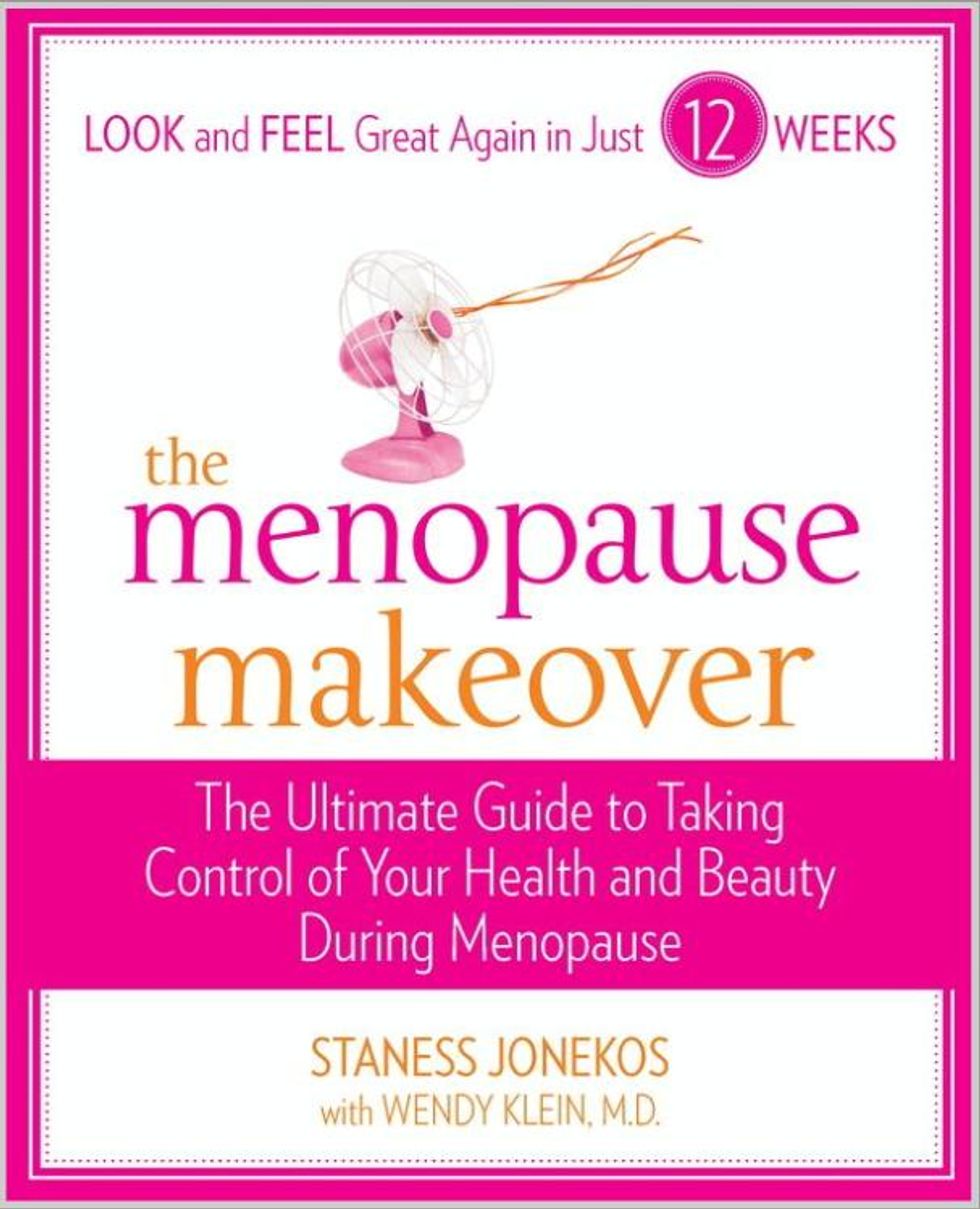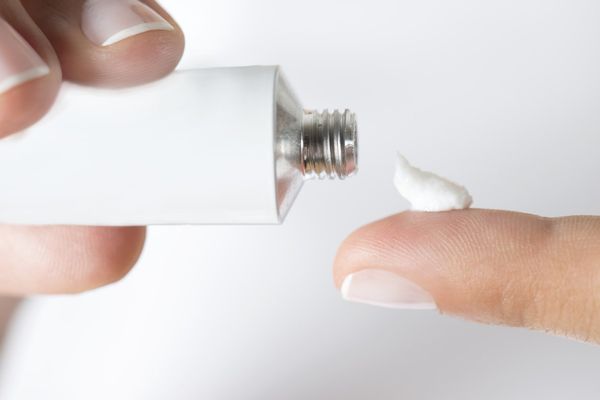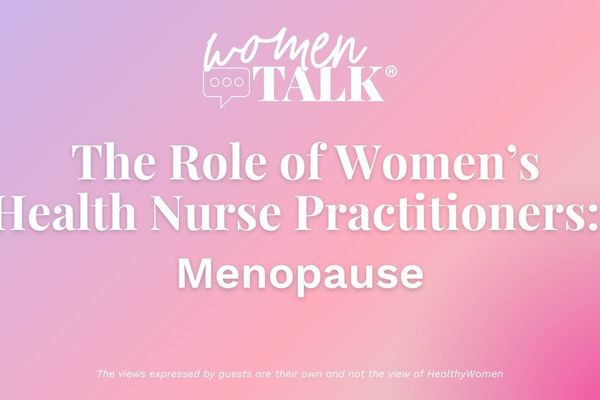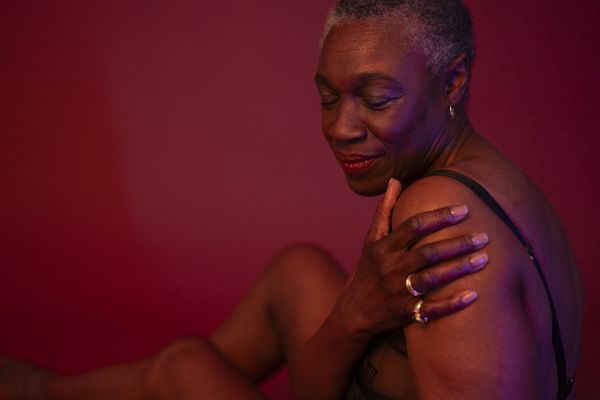By Staness Jonekos
Over 60 percent of divorces are initiated by women in their 40s, 50s or 60s — the menopause years — according to a recent survey conducted by AARP Magazine. Why are women running away from marriage?
I wasn't even married when I slammed into menopause months before my wedding day at the age of 47. Despite being completely in love, I almost ran away and my fiance almost married bridezella!
Experts say the number one reason for divorce is lack of communication. My response from the ladies corner, “When everything you know to be normal is being kidnapped by changing hormones, communication may be last on the list. Throw in lifestyle changes, health and aging issues, and you are left in a small evaporating puddle of low self-esteem feeling hopeless."
Many men blame lack of sex as the leading reason for midlife divorce. But is it? AARP poled 1,682 adults ages 45 and older on the importance of sex. Two-thirds of men (66 percent) and about half of women (48 percent) agreed that a satisfying sex life was important to their quality of life. That is only an 18 percent difference. So is it lack of sex, or a breakdown in communication chasing the women away?
Navigating a course in uncharted territory can test any relationship emotionally and sexually. It can also bring a couple closer — it did for me.
Purchasing midlife marriage insurance can help combat the unforeseen hazards during the menopause transition. How do you qualify for this love insurance? The first step is to understand how menopause can affect your love life.
Ladies first.
Menopause is a life transition that can affect you physically and emotionally. Your body is experiencing fluctuating hormones that can cause hot flashes, night sweats, itchy skin, migraine headaches, breast tenderness, vaginal dryness and irregular periods. Eighty percent of women will experience uncomfortable symptoms, and the majority struggle with midlife weight gain.
Many women feel unattractive going through so many uninvited changes. Some suffer from exhaustion, depression and moodiness leaving them feeling isolated and confused.
During menopause a woman's brain also goes through changes. Dr. Louann Brizendine (author of The Female Brain) says, “The mommy brain unplugs. Menopause means the end of the hormones that have boosted communication circuits, emotion circuits, the drive to tend and care, and the urge to avoid conflict at all costs."
There are additional factors on top of fluctuating hormones that may contribute to a lack of communication and interest in sex.
Dr. Wendy Klein, co-author of The Menopause Makeover and leading menopause expert, informed me, “If a woman is taking medications, such as antidepressants, mood stabilizers, contraceptive drugs, antihistamines, sedatives, antihypertensives and/or medications for blood pressure, this can also decrease sexual desire."
Midlife stresses brought on by career change, the loss of a loved one, empty nest syndrome or caring for elderly parents can contribute to a declining libido.
Throw in aging issues and the last thing on a menopausal woman's mind is communicating. This woman is in self-survival mode, and may be in no mood to connect or make whoopi.
If she is in an unsupported relationship while managing this collection of changes, leaving the marriage may appear like her only salvation.
Gentlemen — your turn.
How many factors listed above is your partner experiencing? It is no surprise why men are afraid of menopause. His woman is changing in front of his eyes.
Women are not alone suffering from changes. Men also have midlife challenges, both physically and emotionally. Declining testosterone can affect libido, moods and sexual performance. Generally a man's hormones change gradually compared to the woman's experience during menopause, so it may not be obvious to the man that he too is changing. Some of these unwelcomed changes may include midlife stress, as well as health and aging issues. If both partners are experiencing change, the relationship may be on an emotional roller coaster.
Approximately 47 percent of women experience sexual difficulties with a decrease of sexual desire being the most common, according to the National Health and Social Survey and the Global Study of Sexual Attitudes and Behaviors.
It is no surprise that most men associate menopause with having less sex. But, it does not have to be this way. The man can actually help save a shaky midlife marriage with some handy tools to power charge the relationship. Women who have a supportive partner often have a smoother transition through menopause. When she is happy, he is happy.
Acquiring midlife marriage insurance takes action to make a difference.
Midlife Marriage Insurance For Him
1. Listen to her; don't criticize or try to fix her.
2. Go with the flow; be prepared for mood swings.
3. Be compassionate, and validate her experience (that means agree with her, don't try to fix her).
4. Be romantic. Bring her flowers for no reason. Make her dinner. Give her a massage. Make it about HER.
5. Cuddle more. Tell her you love her and that she is beautiful. You may just get lucky. If not, do not take it personally.
6. If YOU are not in the mood, keep her company shopping, she will love the company
7. Support healthy eating and exercise choices. Join her for a walk or go on a hunting expedition at the grocery store to find new healthy foods.
8. Don't ignore her menopause symptoms. Talk about it. Ask her what she needs to feel better.
9. Offer support if she needs to visit her healthcare provider to discuss menopause symptoms, a low libido or depression.
10. If numbers one through nine fail – disappear for a while. She may be seriously cranky and need space to focus on herself.
Success depends on going through this transition as a team! Both partners must contribute to have a successful marriage.
Midlife Marriage Insurance For Her
1. Track menopause symptoms and discuss treatment options with your healthcare provider.
2. Make a commitment to a healthy lifestyle. Exercise most days of the week. Eat nutritious meals. Watch portions.
3. Update your beauty regimen.
4. Build a support group.
5. Communicate with your partner. Don't shut him out – let him know what you need. Understand he may be confused by your changes.
6. If you are not happy in your current relationship, discuss counseling.
7. Be receptive to creative adjustments in lovemaking activities.
8. If your libido is low and/or you are suffering from vaginal dryness, discuss your treatment options with your healthcare practitioner. There are hormone and non-hormone options available.
9. Pamper yourself.
10. Try to stay positive.
Communicate, support each other's needs, get counseling if needed, add romance, adjust lovemaking activities, and your odds increase that your marriage will survive menopause. Being on the same team will nourish a healthy, loving relationship that can last a lifetime.
Life is constantly changing, and marriage is no different. Have real expectations, and acknowledge that your relationship goes through transitions. This will help you weather difficult times.
Midlife is an opportunity for both men and women. If you are prepared, informed and willing, your marriage can survive menopause. A loving relationship supported with good communication can strengthen your love life at any age.
This menopausal bride made it down the aisle of love. Both my partner and I said “I do" to communication and romance during menopause. We are still happily married five years later and ready to leap over the seven-year itch together.
References
Montenegro, X. The Divorce Experience: A Study of Divorce at Midlife and Beyond. AARP, May 2004.
Brizendine, L. The Female Brain. New York: Broadway Books; 2006.
Jonekos, S. and W. Klein. The Menopause Makeover. Ontario, Canada: Harlequin Enterprises; 2009.

Following her commitment to health, Staness co-executive produced the premiere season of VH1's Celebrity Fit Club, and post produced Lifetime's Speaking of Women's Health.
Recently, Staness launched into the publishing world sharing her 8-step 12-week Menopause Makeover program in her first book The Menopause Makeover, co-authored with menopause expert Dr. Wendy Klein.
- What’s Hot About Menopause? Sex! - HealthyWomen ›
- Women in the Middle - HealthyWomen ›
- How to Support Women Going Through Menopause - HealthyWomen ›
- What Is a Sleep Divorce? - HealthyWomen ›
- Could Separate Beds Improve Your Marriage? - HealthyWomen ›
- Health in Your 50s: Take the Time to Stay Healthy Through Menopause - HealthyWomen ›
- Health in Your 50s: The Consequences of Life's Choices - HealthyWomen ›
- Why Do People Cheat in Relationships - HealthyWomen ›
- Is Your Partner Having an Emotional Affair? - HealthyWomen ›







